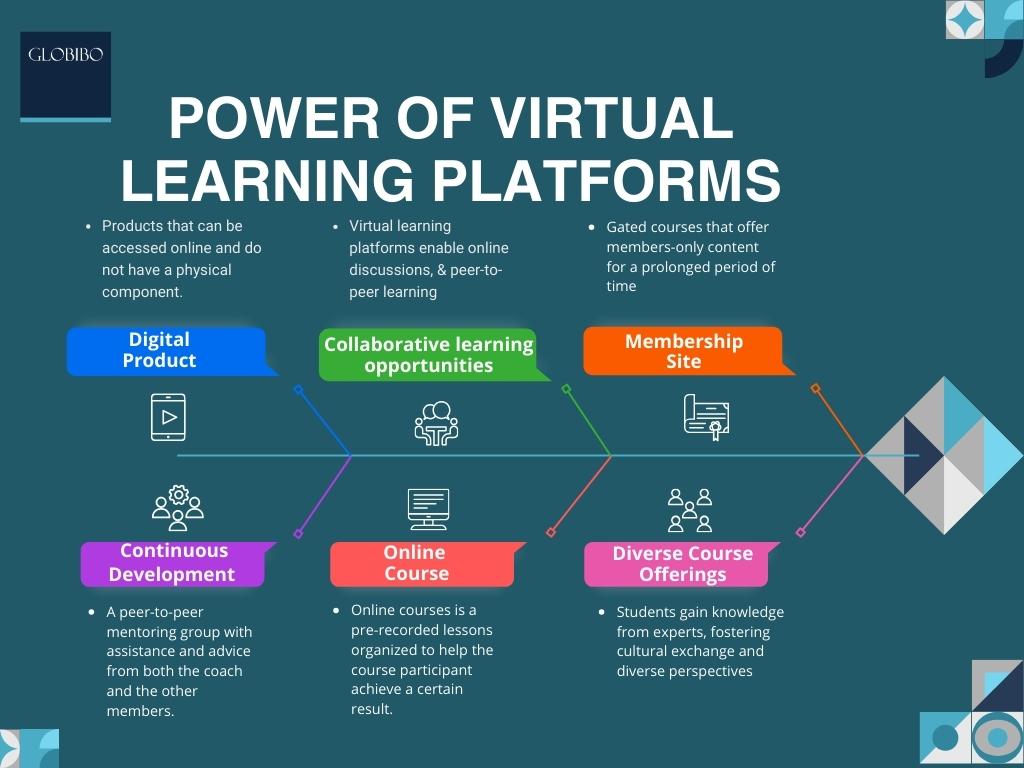
In today’s fast-paced and interconnected world, technology has transformed every aspect of our lives, including education. The rise of virtual learning platforms has revolutionized the way we acquire knowledge and skills. These platforms provide a flexible, accessible, and interactive learning experience that transcends traditional classroom boundaries. In this article, we will explore the power of virtual learning platforms and how they are reshaping education in the digital age.
Introduction
Virtual learning platforms, also known as online learning platforms or e-learning platforms, have become increasingly popular in recent years. These platforms utilize technology to deliver educational content, facilitate interactions, and provide a wide range of learning resources. From K-12 education to higher education and professional development, virtual learning platforms are reshaping the landscape of education
What are Virtual Learning Platforms?
Virtual learning platforms are online platforms that offer a variety of educational resources, courses, and tools to facilitate learning. They utilize multimedia elements, such as videos, interactive quizzes, and discussion forums, to engage learners and create an immersive learning experience. Virtual learning platforms can be accessed through computers, laptops, tablets, or smartphones, providing learners with the flexibility to study anytime and anywhere.
Advantages of Virtual Learning Platforms
Virtual learning platforms offer numerous advantages that are transforming education in the digital age. Let’s explore some of the key benefits:
a. Flexibility and Accessibility
One of the most significant advantages of virtual learning platforms is flexibility and accessibility. Learners can access educational materials, resources, and courses at their convenience, fitting their studies around other commitments. Whether it’s working professionals seeking to upskill, students pursuing higher education, or individuals in remote areas with limited access to educational institutions, virtual learning platforms break down barriers to education and provide equal opportunities for all.
b. Interactive and Engaging Learning Experience
Virtual learning platforms offer interactive and engaging learning experiences. Through multimedia elements, such as videos, animations, simulations, and gamified activities, learners can actively participate in the learning process. These platforms often incorporate adaptive learning technologies that personalize the learning experience based on individual progress and needs. Interactive discussions, live webinars, and virtual classrooms create a sense of community and foster collaboration among learners and instructors.
c. Personalized Learning Paths
Virtual learning platforms allow learners to customize their learning paths. They can choose from a wide range of online language courses and resources based on their interests, goals, and skill levels. Learners can study at their own pace, revisiting challenging topics or accelerating through familiar ones. Personalized learning paths enable individuals to focus on their specific learning needs and optimize their educational journey.
d. Collaboration and Global Connections
Virtual learning platforms facilitate collaboration and global connections. Learners from different parts of the world can interact, share ideas, and collaborate on projects through online discussions, group assignments, and virtual study groups. This global reach provides diverse perspectives and promotes cross-cultural understanding, preparing learners for a globally interconnected world.
e. Continuous Learning and Skill Development
Virtual learning platforms foster a culture of continuous learning and skill development. Learners can access a wide range of courses, workshops, and resources beyond traditional academic curricula. They can enhance their existing skills, acquire new ones, or explore diverse areas of knowledge. Continuous learning and skill development empower individuals to adapt to a rapidly changing job market and thrive in their careers.
f. Overcoming Barriers to Education
Virtual learning platforms play a crucial role in overcoming barriers to education. They provide access to quality education for individuals who face geographical, financial, or physical constraints. Virtual learning platforms create inclusive learning environments where learners of all ages, backgrounds, and abilities can pursue education and professional development.
Conclusion
Virtual learning platforms are revolutionizing education in the Empowering digital age. With their flexibility, accessibility, interactive nature, personalized learning paths, collaboration opportunities, and continuous skill development, these platforms are transforming the way we learn and acquire knowledge. As technology continues to advance, virtual learning platforms will play an increasingly vital role in ensuring equitable access to education and empowering individuals to reach their full potential.
For More Details Visit: https://www.globibo.com/
Frequently Asked Questions (FAQs)
1. What are virtual learning platforms?
Virtual learning platforms are online platforms that offer educational resources, courses, and tools to facilitate learning. They provide a flexible, accessible, and interactive learning experience through multimedia elements and personalized learning paths.
2. What are the advantages of virtual learning platforms?
Virtual learning platforms offer advantages such as flexibility and accessibility, interactive and engaging learning experiences, personalized learning paths, collaboration and global connections, continuous learning and skill development, and overcoming barriers to education.
3. How do virtual learning platforms promote flexibility?
Virtual learning platforms allow learners to access educational materials and resources at their convenience. They provide the flexibility to study anytime and anywhere, accommodating diverse schedules and commitments.
4. Can virtual learning platforms cater to individual learning needs?
Yes, virtual learning platforms offer personalized learning paths. Learners can choose courses and resources based on their interests, goals, and skill levels. They can study at their own pace and focus on specific areas of interest or improvement.
5. How do virtual learning platforms foster collaboration?
Virtual learning platforms facilitate collaboration through online discussions, group assignments, and virtual study groups. Learners from different parts of the world can interact and collaborate, promoting cross-cultural understanding and knowledge exchange.

